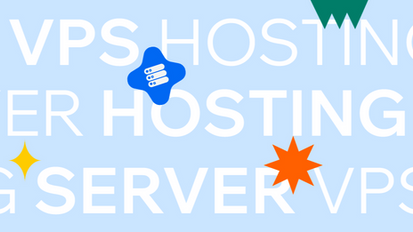Cognition AI Website Challenges
How to Cognition AI Website
Cognition AI Website
As a small business owner, creating an online presence is essential in today’s digital world. A website serves as a virtual storefront where potential customers can learn more about your products or services, contact you, and ultimately make a purchase. However, building a professional-looking website can be daunting, especially if you don’t have any technical skills or experience.

The Ultimate Guide to Cognition AI Website
Cognition AI Website
When designing a website with SEO in mind, there are several key factors to consider. These factors include website structure, content, user experience, and technical aspects such as site speed and mobile-friendliness. By focusing on these elements, you can create a website that is not only visually appealing but also ranks well in search engine results.
Website structure is an important aspect of SEO web design. A well-organized site structure makes it easier for search engines to crawl and index your site, leading to better search engine rankings. A clear hierarchy of pages, with logical navigation and internal linking, helps search engines understand the content and relevance of each page. By organizing your website in a structured manner, you can improve the user experience and make it easier for visitors to navigate your site.
Content is another key factor in SEO web design. High-quality, relevant content is essential for attracting and engaging visitors, as well as improving search engine rankings. When creating content for your website, it’s important to use relevant keywords and phrases that users are likely to search for. By incorporating keywords strategically throughout your content, you can improve your chances of ranking well in search engine results.
User experience is also crucial in SEO web design. A website that is easy to navigate, loads quickly, and is mobile-friendly will provide a better experience for users and improve search engine rankings. In addition, user-friendly design elements such as clear calls to action, easily accessible contact information, and intuitive navigation menus can help increase user engagement and conversions.
Technical aspects of web design, such as site speed and mobile-friendliness, can also impact SEO. Search engines give preference to websites that load quickly and are optimized for mobile devices, so it’s important to ensure that your site is responsive and loads quickly on all devices. By optimizing images, minifying code, and using a content delivery network, you can improve site speed and user experience, leading to better search engine rankings.
1. Wix
Wix is a popular website builder that offers a user-friendly interface and a wide range of design templates to choose from. With Wix, small businesses can easily create a professional-looking website without any coding skills. The drag-and-drop editor makes it easy to customize your site to fit your brand and business needs. In addition, Wix offers a free plan that includes Wix branding and a subdomain, making it a great option for small businesses on a tight budget.
2. WordPress
WordPress is one of the most popular content management systems (CMS) in the world, powering millions of websites. While WordPress is known for its flexibility and customization options, it can be a bit intimidating for beginners. However, WordPress.com offers a free plan that allows users to create a basic website with limited customization options. For small businesses looking for more control and flexibility, WordPress.org is a better option, but it requires a hosting plan.
3. Weebly
Weebly is another user-friendly website builder that is perfect for small businesses. With Weebly, users can choose from a wide range of design templates and easily customize their website with drag-and-drop tools. Weebly also offers e-commerce features, making it a great option for small businesses looking to sell products online. While Weebly’s free plan includes Weebly branding and a subdomain, users can upgrade to a paid plan for more features and customization options.
4. Squarespace
Squarespace is a sleek and modern website builder that is perfect for small businesses looking to create a visually stunning website. With Squarespace, users can choose from a range of design templates and customize their site with a drag-and-drop editor. While Squarespace does not offer a free plan, they do offer a 14-day free trial, allowing users to test out the platform before committing to a paid plan.
5. Shopify
Shopify is a popular e-commerce platform that allows small businesses to create an online store. While Shopify is primarily geared towards e-commerce, they also offer a website builder that allows users to create a basic website for their business. With Shopify, users can choose from a range of design templates and customize their site with drag-and-drop tools. While Shopify does not offer a free plan, they do offer a 14-day free trial, allowing users to test out the platform before committing to a paid plan.

What Is Cognition AI Website?
Cognition AI Website
Conclusion
SEO is a powerful marketing tool that can help improve your website’s visibility in search engine results, drive organic traffic to your website, and increase leads and conversions. By understanding and implementing the basics of SEO, including keyword research, content creation, on-page and off-page optimization, technical SEO, and monitoring and analysis, you can improve your website’s online presence and grow your business. Use this SEO marketing tutorial as a guide to help you navigate the complex world of SEO and achieve success in the digital landscape.


